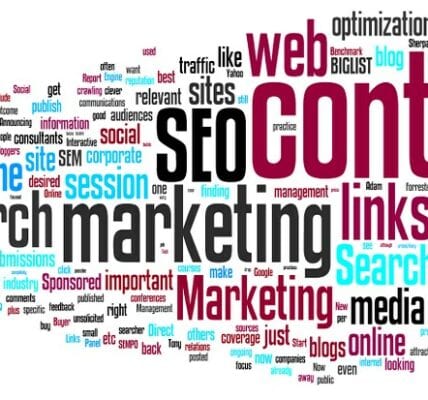By Eamonn O Raghallaigh
 Branding has undergone a number of evolutionary steps in the last hundred years; from its initial state as a statement of quality and authenticity in product-based branding, to the communication of concepts and ideas in the latter part of the 20th century, and finally to its current state, where ideals, values and societal ethics form a major part of the branding landscape. Brands have emerged as an important asset to any company and it has been recognised by forward-thinking companies that they are more than merely a mark of quality; they are a statement, they have attitude and personality and are a method of communicating the key philosophies of a company to consumers.
Branding has undergone a number of evolutionary steps in the last hundred years; from its initial state as a statement of quality and authenticity in product-based branding, to the communication of concepts and ideas in the latter part of the 20th century, and finally to its current state, where ideals, values and societal ethics form a major part of the branding landscape. Brands have emerged as an important asset to any company and it has been recognised by forward-thinking companies that they are more than merely a mark of quality; they are a statement, they have attitude and personality and are a method of communicating the key philosophies of a company to consumers.
The new brand paradigm, as discussed by Sara de Dios1, puts an expectation on brands to do more if they are to survive; to improve their customer’s quality of life, to contribute to their personal wellbeing and to add value to society at large. This shift from the concept of a brand as purely a product towards the outcome of the consumption of that product marks a generational leap forward in the concept of what branding means in today’s world. This emphasis on the outcome or impact of a product on society, on consumers and on the environment marks the beginning of a new challenge in marketing and branding.
As discussed by de Dios and other authors2, there are seven dimensions of wellness that exist and that these are critical in promoting our wellbeing and happiness. These are (a) physical; improving our health, fitness and physical appearance, (b) intellectual; improving our intellectual capacity and skills, (c) economical; improving our financial situation, (d) organisational; making our daily lives easier, (e) emotional; improving our feelings of happiness and wellbeing, (f) social; improving our relationships with others and finally (g) spiritual; improving our connection with our value and belief systems. Meaningful brands are brands that succeed in bridging the connection between the outcome of their product’s consumption and the dimensions of wellness that consumer’s experience.
According to the Havas Meaningful Brand Index3, which tracks the opinions of over 50,000 people on 300 brands across 14 markets, there is strong evidence that meaningful brands enjoy stronger brand equity and business results. The top ten brands in the index outperform their peers in the stock market and enjoy greater brand value growth, experience greater consumer preference and loyalty. Consumers feel a stronger attachment to these brands because they perceive they are playing a meaningful and useful role in their lives. Furthermore, consumers who are highly demanding of brands tend to become brand ambassadors as their connection to the brand is strong and are more willing to pay a premium. Conversely brands that contribute to negative outcomes will suffer depreciation of their brand equity.
In the food and beverage sector, take the example of McDonalds – they are experiencing a significant depreciation of their brand equity due to the link between fast food and the global obesity epidemic4 and obesity is now seen as one of the major social harms in existence at present. For many commentators, the decline of McDonald’s brand equity started in 2004 when the documentary directed and starred by Morgan Spurlock, ‘Supersize Me’, was watched for millions of people all around the world5. The film took a highly critical view of McDonald’s and their ever increasing portion sizes and their role in feeding the global obesity epidemic. Although McDonald’s contributes to the social good through sponsorship and environmental activities (and these activities are now being curtailed due to negative associations), their brand is in critical danger as consumers, governments and regulators all react vigorously to combat the obesity epidemic; this is something McDonald’s cannot escape with their current product range.
McDonald’s reacted by introducing healthier ranges of products and including nutritional information on packaging; however the fact of the matter is that a ‘Big Mac’ meal is still over 1000 calories and is high in saturated fat and cholesterol. The McDonald’s brand will need a complete restructuring to ‘healthy food’ as opposed to ‘fast food’ if they are to survive into the future. Furthermore, there is talk of the introduction by governments of a ‘fat tax’ by some commentators6, as an attempt to pay for the extra strain the obesity epidemic is putting on healthcare systems and if this comes into effect, the cost of fast food will become prohibitively high, further damaging McDonald’s profits and sustainability.
On the other hand, take the example of “Flora Pro-Activ” margarine, marketed by Unilever as a healthier alternative to traditional butter and margarine. The product contains plant sterols which block the absorption of cholesterol into the blood stream, and has proven health implications in terms of reduction in cardiac mortality7. Flora has successfully captured the idea of connecting dimensions of wellness with the outcome of their products consumption. Not only does the product taste good, it reduces cholesterol (in some instances, it is as effective as prescribed medication for high cholesterol) and this contributes to the physical wellbeing of consumers. Flora has forged relationships with the Irish Heart Foundation and sponsored and promoted a healthier lifestyle for all, contributing to increased sales and brand loyalty.
The success of the margarine product led to the introduction of further variations of this functional food, including cholesterol lowering yoghurt drinks and ‘flora cuisine’, a frying oil substitute. Functional foods now form an important step forward in meaningful branding in the food sector as tangible health benefits for consumers are highlighted. Other examples include pro-biotic yoghurts promoting digestive system health, fortified milk and dairy products promoting bone and dental health, sugar-free anti-bacterial chewing gums promoting dental health and omega-3 fatty acid fortified dairy products promoting brain and eye health.
Another industry which demonstrates the ‘meaningful brand’ concept very succinctly is the IT industry with major brands like Google and Apple being the forerunners. Google has adopted a philosophy to make all the information in the world available to all in a user friendly manner. This makes our lives easier; we find information faster and a lot more of it than we ever did before. This wealth of knowledge and information at our fingertips (as in Google Search) enhances our intellectual, social and organisational wellbeing. Apple, with its suite of technology products, enhances our enjoyment of life through music and applications which aid productivity and connectivity. Furthermore, the accessibility of technology at our fingertips – including video and photographic technology captures moments and memories in our lives where before the technology might not have been so readily available in our pocket at any particular time. The benefits these products bring to our lives are so impactful that the respective brands have experienced unsurpassed growth in the last 5 years and are both listed in the top 20 of the Havas Meaningful Brand Index, as discussed previously.
Another interesting example of a brand that contributes to consumer’s wellbeing and the greater good of society is Facebook. Facebook connects over a billion users now to each other – strengthening social relationships and facilitating social communication. However, as strong as the brand is, its strategy is fraught with danger as not only does contribute to the positive dimensions of wellness; it also contributes to negative sentiments. Maybe this is a reason as to why it does not feature in the top 20 of the Meaningful Brand Index. Take the example of cyber-bullying; it has been speculated that Facebook has contributed significantly to and indirectly facilitated bullying amongst teenagers, notably here in Ireland, resulting in a spate of teenage suicides in 2012 and 20138. The brand has suffered due to this perceived association between Facebook and cyber-bullying. This demonstrates the fine line between contributing to the greater social good and inflicting social harm; and the question to ponder is which of these two effects are the consumer most likely to remember and be influenced by.
Another example of a brand being exposed to the dangers of overt societal engagement is the recent Dove ‘Real Beauty’ campaign9. In the online video, women sit with a sketch artist, who draws a portrait of them in pencil, based on the descriptions they provide of themselves. Then, another sketch is drawn, but this time, it’s someone else’ description of the same woman. The two images are hung next to each other, and the differences between them are vast; the women tended to give an inaccurate and unflattering view of themselves; demonstrating sentiments of low self-esteem and poor body image. The negative backlash online was vigorous; did women really need to be reminded that they are innately afflicted and socially conditioned with poor self-image? The sentiment online labelled Dove, a Unilever brand, as a beauty product that profits from women’s insecurities and some commentators even viewed it as manipulative. The social good Unilever was trying to achieve through the ad failed spectacularly and it demonstrates the acute dangers associated with brands trying to engage with societal issues overtly.
As brand strategists now rally to develop novel techniques for creating meaning and social purpose for their respective brands, the task at hand is how to achieve this transformation. The concept of meaningfulness is a mindset that needs to be adopted as opposed to a marketing or branding strategy. A number of key fundamental shifts in thinking are required to make the transition. Firstly, people need to be thought of as citizens, not consumers; brands needs to start to empower consumers and start to consider themselves as platforms that guide citizens to achieve their goals and desired outcomes. The key point is not what the brand represents; it’s how can the brands existence help people to change their lives for the better. Brand strategists need to understand what dimensions of wellness their particular brand can influence and to leverage these dimensions to achieve greater brand equity.
A second key shift in thinking is to migrate from the concept of products towards outcomes. People now expect brands to have a positive and tangible impact on their wellbeing and lives, their family’s lives and on their communities. People seek outcomes from brands; they expect them to help them to create new lifestyles and standards consistent with their core values and belief systems. To achieve this, brand strategists need to focus more on outcomes and leverage how these outcomes contribute positively to personal and social wellbeing.
A third key shift in mindset is to move towards the development of a transformational brand as opposed to a purely functional one. Brands that are meaningful are also transformational; they have a key goal of transforming consumers, their habits and society in general for the greater good. To achieve this, brand strategists need to look for ways for their brands to partner with and mentor their consumers to help to achieve personal goals and transform their lives. This is not an easy feat as this normally requires a complete reinvention of a brand’s strategy. Most of the companies that have achieved this have had to undergo significant process and brand engineering.
With the emergence of a vastly different and novel landscape in current best practice, the new branding paradigm represents the most challenging obstacle seen to brand success in recent times. Brands need to reinvent themselves in order to succeed; they need to provide meaning in consumer’s lives, to add value to their everyday activities and to adopt a mindset which views the consumer in human terms as opposed to financial. Brands are now the ambassadors of the greater good in society and are expected to champion what is beneficial for the consumer as opposed to their profit and loss accounts. Companies failing to adopt this mindset are at risk of brand equity erosion as consumers become more educated, more vocal online and more critical of brand’s who do not have their best interests at heart. The power is now in the hands of the consumer and brand’s need to play into this or they risk drifting into the murky depths of brand oblivion.
Copyright Eamonn O Raghallaigh 2013
References
- Meaningful marketing; A brand utopian world. Sara de Dios. Havas Media. Admap: April 2012. Retrieved online 10/05/2013: https://www.warc.com
- Conceptualization and Measurement of the Spiritual and Psychological Dimensions of Wellness in a College Population. Troy B. Adams, Janet R. Bezner, Mary E. Drabbs, Robert J. Zambarano, Mary A. Steinhardt. Journal of American College Health. Vol. 48, Iss. 4, 2000
- The Meaningful Brand Index. Havas Media, 2011. Retrieved online 11/05/2013. https://www.havasmedia.com/meaningful-brands.
- Fast-Food Consumption, Diet Quality, and Neighbourhood Exposure to Fast Food: The Multi-Ethnic Study of Atherosclerosis. Latetia V. Moore, Ana V. Diez Roux, Jennifer A. Nettleton, David R. Jacobs, and Manuel Franco. Am. J. Epidemiol. (2009) 170(1)
- Can McDonald’s Food Ever Be Considered Healthful? Metacognitive Experiences Affect the Perceived Understanding of a Brand. Kyoungmi Lee, Sharon Shavitt. Journal of Marketing Research 2009 46:2, 222-233
- Junk-food, home cooking, physical activity and obesity: The effect of the fat tax and the thin subsidy. Gideon Yaniva, Odelia Rosinb, Yossef Tobolc. Journal of Public Economics, Volume 93, Issues 5–6, June 2009, Pages 823–830
- New insights into the molecular actions of plant sterols and stanols in cholesterol metabolism. Laura Calpe-Berdiela, Joan Carles Escolà-Gila, Francisco Blanco-Vacaa. Atherosclerosis. Volume 203, Issue 1, March 2009, Pages 18–31
- Cyber-bullies claim the lives of five teens. Evening Herald 25 January 2013. Ralph Riegel. Retrieved online 14/05/2013. https://www.herald.ie/news/cyberbullies-claimed-lives-of-five-teens-29043544.html
- Dove Campaign for Real Beauty. Wikipedia. Retrieved online 16/05/2013. https://en.wikipedia.org/wiki/Dove_Campaign_for_Real_Beauty





Recent Comments